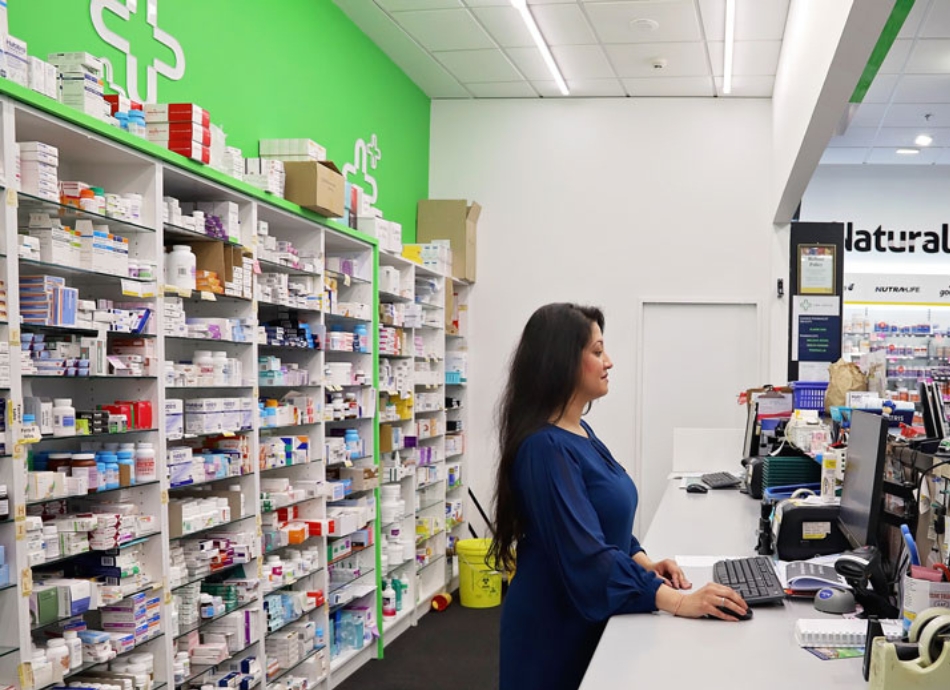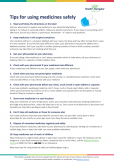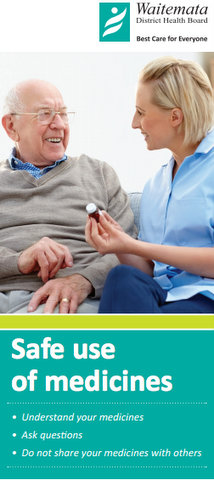You can now add Healthify as a preferred source on Google. Click here to see us when you search Google.
Medicines – safety tips
Key points about medicine safety tips
- Every year more than 2000 New Zealanders go to hospital because of accidental poisoning.
- Accidents and other problems with medicines may happen if you put medicines into different bottles, you don’t take medicines as prescribed or if children find medicines and take them.
- Here are some safety tips for medicines that can help to prevent poisoning.

Call the New Zealand National Poisons Centre(external link) immediately on 0800 764 766 for advice. They will tell you what to do.
- The National Poisons Centre provides emergency advice in the event of a poisoning. It is free and available 24 hours a day, 7 days a week.
- Wait for advice: Don't try to make your child or the person vomit or give food or liquid until you've been given advice.
- Read about hints and tips for calling the Poisons Centre(external link).
OR call 111 within New Zealand for an ambulance if:
- your child or the person is unconscious or having difficulty breathing
- you are worried that your child or the person looks very ill
- the Poisons Centre has told you to do so.
If you have to go to hospital, take the medicine and the container with you. This will give the hospital good information about the medicine and how much has been taken.
OR seek medical advice from another health professional including calling any pharmacy and asking to speak to a pharmacist.
Take your medicines as directed on the label or packaging. Do not take more than the prescribed dose if you're not sure. Check the dose with your doctor or pharmacist. Some medicines have special instructions to reduce or avoid side effects, eg, take with food or avoid alcohol.
When you collect a new medicine, ask your pharmacist when to take it and whether there are any special instructions.
Medicines dispensed from the pharmacy are in containers labelled with the name of the person who is to take them, the dose and how often to take them.
Many medicines are foil packed. Keep them in the foil until you take them. Foil packaging slows down the number of tablets that children can take quickly if they find them. Foil packaging also protects medicines from damage.
If foil packs are hard for you to open, ask your pharmacist if they can pop the tablets into a labelled container for you. Don't pop them out yourself at home and put them into an old pharmacy bottle and never put medicines into food or drink containers.
If you are taking a few medicines or can’t remember to take them, your pharmacy may be able to put them in to calendar packs (also called blister packs, sachets or Medico Packs). The pharmacist can sort them into clear these plastic bubbles or sachets – one for each time of day. This makes it safer and easier for you.
If your medicines look different to your last supply, talk to your pharmacist. Medicines can have more than one brand name and may look different but it’s always best to check and be sure.
Sometimes one medicine can interact with another in your body. This means your medicines may not work the same and may cause side effects. This can also happen when medicines mix with certain foods or drinks (including alcohol).
When buying medicines yourself, such as over-the-counter medicines from a pharmacy or supermarket or herbal remedies, vitamins and minerals, always ask your pharmacist about interactions.
If you are starting a new medicine, ask your doctor or pharmacist to check if it is okay to take them with other medicines you are taking.
If you have problems swallowing your tablets or capsules, ask your pharmacist if it is safe to chew, crush or break tablets, or open capsules. Some medicines don't work properly or may be harmful if they're crushed or opened.
Most medicines can be kept at room temperature, but some need to be stored in the fridge. Don't keep medicines in the fridge unless the label says to do so.
The bathroom is not a good place to store medicine. The steam from baths and showers can stop them working well. If you notice that your tablets have changed, show them to your pharmacist before using them. They may have been damaged by moisture or changing temperatures.
It can be easy to just use medicines you have at home, but you should not take medicines that:
- were prescribed for someone else
- are past their use by date
- were prescribed for you months or years ago, even if you have the same condition now.
If you have new symptoms or need medicines, talk to your doctor or pharmacist.
If you have leftover medicines, take them to your pharmacy for safe disposal. Don't put medicines in the rubbish or down the toilet. This can harm the environment. Read more about how to dispose of unwanted medicines properly(external link).
Young children don't know what medicines are – to them they look like lollies, and it only takes a few minutes for them to help themselves. If children see you taking medicines, they may want to copy you if they find them.
The best place to keep medicines is in a high locked cabinet. If this is not possible, keep them in a place that is hard for children to see and reach. Remember that children over the age of 2 can be expert climbers!
All medicines can be dangerous, especially in overdose. Medicines that you can buy in the supermarket, like paracetamol, are very harmful if too much is taken.
Medication safety(external link) Health Quality and Safety Commission, NZ
Use of medicines in NZ(external link) Health Quality and Safety Commission, NZ
Resources
Using Medicines Safely A6 card [PDF, 50 KB] Waitemata District Health Board, 2017 Chinese [PDF, 95 KB] English [PDF, 50 KB] Korean [PDF, 100 KB]
Taking your medicine safely(external link)(external link) Health Quality and Safety Commission NZ, 2012
Safe use of medicines – patient guide(external link)(external link) Waitematā DHB, NZ, 2015
5 questions to ask about your medications(external link) Health Quality and Safety Commission, NZ, 2019 English(external link), te reo Māori(external link)
Resources for healthcare providers
B-QuiCK: Paediatric household poisonings(external link) BPAC, NZ, 2024
Apps/tools
Brochures
 Tips for using medicines safely
Tips for using medicines safely
Healthify He Puna Waiora, NZ

Health Quality and Safety Commission NZ, 2012

Waitematā DHB, NZ, 2015
Credits: Sandra Ponen, Pharmacist, Healthify He Puna Waiora. Healthify is brought to you by Health Navigator Charitable Trust.
Reviewed by: Angela Lambie, Pharmacist, Auckland
Last reviewed:
Page last updated:





